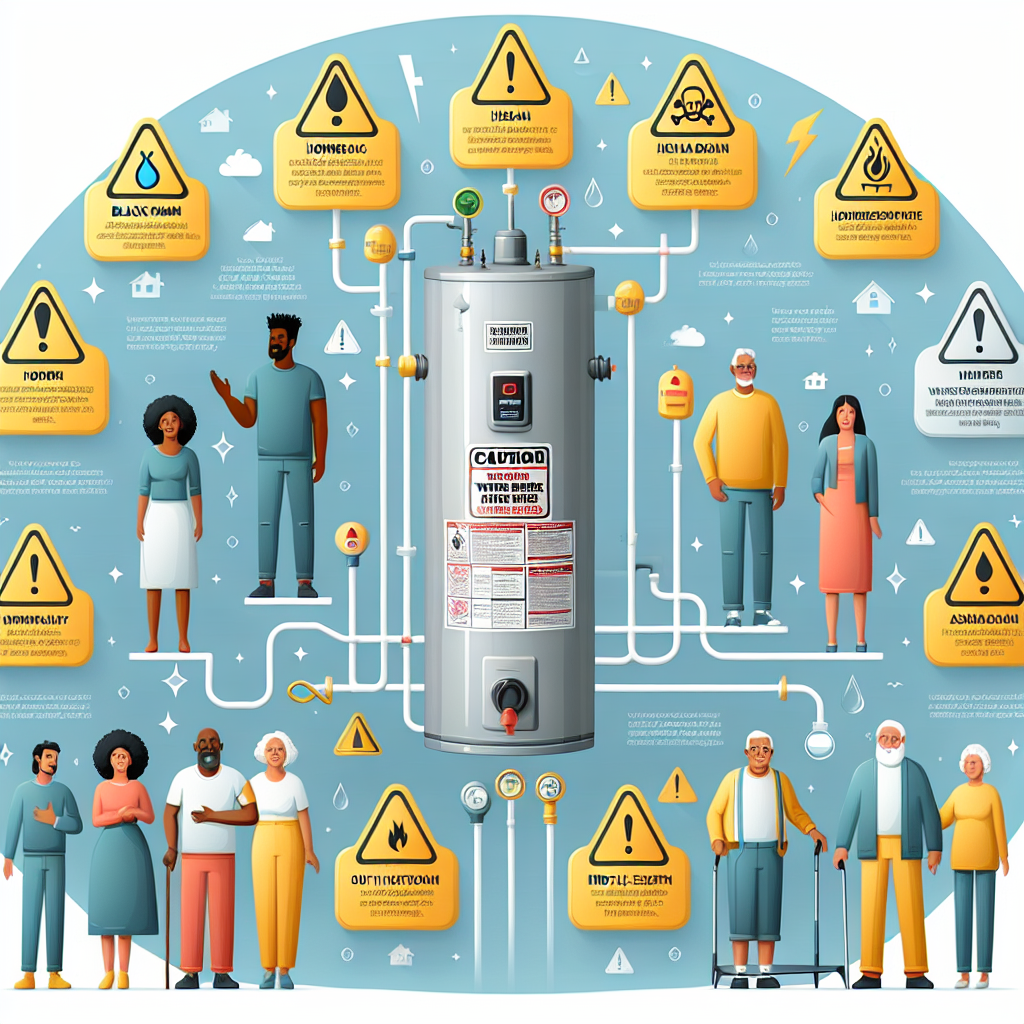Water heaters are often an unassuming yet crucial component of our homes, providing hot water for everything from morning showers to cozy evenings with family. However, like any other appliance, they require careful maintenance and attention to safety. As a homeowner, knowing how to properly handle and maintain your water heater can help prevent accidents and extend the life of the unit. Here are essential water heater safety tips every homeowner should know.
Understanding Your Water Heater
Water heaters come in various types, including tankless, storage tank, and heat pump models. Knowing the specifics of your unit is crucial. Review the manufacturer’s manual and familiarize yourself with the key features, maintenance requirements, and safety protocols relevant to your specific type.
Check the Temperature Setting
Setting the right temperature on your water heater is essential for safety and efficiency. The U.S. Consumer Product Safety Commission recommends setting your water heater to 120°F (49°C). This temperature helps prevent scalding while also conserving energy. If you have young children or elderly family members at home, this adjustment becomes even more critical.
Regular Maintenance is Key
Flush Your Water Heater Annually
Over time, sediment and minerals can build up in your water heater tank, leading to inefficiency and potential damage. Flushing your water heater at least once a year can help remove these deposits. You can either hire a professional or follow the manufacturer’s guidelines to do it yourself.
Inspect the Anode Rod
The anode rod is a crucial component that helps prevent corrosion within the tank. Check this rod every 1-2 years and replace it when it has worn down significantly. A healthy anode rod can extend your water heater’s lifespan by several years.
Be Vigilant About Leaks
Regularly Check for Leaks
Water heater leaks can lead to significant water damage and mold growth if not addressed promptly. Routinely inspect your water heater for signs of drips or puddles. If you notice any leaks, it’s essential to contact a professional plumber who can diagnose and fix the issue.
Know When to Replace Your Unit
While regular maintenance can extend your water heater’s life, eventually, all units will reach the end of their lifespan—typically 8-12 years for tank models. Pay attention to signs such as rust, inconsistent water temperature, or unusual noises (like rumbling or popping sounds). If you encounter these issues, consider replacing your unit to ensure safety and efficiency.
Ensure Proper Ventilation
Gas Water Heaters
If your water heater runs on gas, proper ventilation is crucial to avoid dangerous gas buildup. Ensure that the vent pipes are free from obstructions. Regularly checking the ventilation system will help prevent carbon monoxide from accumulating in your home.
Install Safety Features
Install a Temperature Pressure Relief Valve
Every water heater should have a temperature-pressure relief (TPR) valve, which acts as a safety mechanism to prevent excessive pressure and temperature buildup. Regularly inspect this valve to ensure it functions correctly.
Child Safety Locks
If you have children at home, consider installing child safety locks on your water heater to prevent them from tampering with the controls.
Be Prepared for Emergencies
Know the Shut-Off Valve Location
In the event of a malfunction, knowing where the shut-off valve is located can minimize damage and hazards. Make it a point to familiarize yourself and your family with the shut-off mechanism for your water heater.
Have an Emergency Plan
Develop an emergency plan that includes evacuation procedures in case of gas leaks or severe water damage. Having a plan can save lives in a crisis situation.
Conclusion: Embrace Water Heater Safety
Water heaters may not be the most glamorous aspect of homeownership, but ensuring your unit is safe and well-maintained is vital for both comfort and peace of mind. By following these water heater safety tips, you can significantly reduce the risk of accidents and costly repairs. As a responsible homeowner, prioritizing the safety of your water heater not only protects your home but also provides a nurturing environment for your loved ones.
Remember, if you ever feel unsure about your water heater’s condition or safety, don’t hesitate to contact a licensed professional for assistance. Taking proactive steps today ensures a safer, more comfortable tomorrow.


